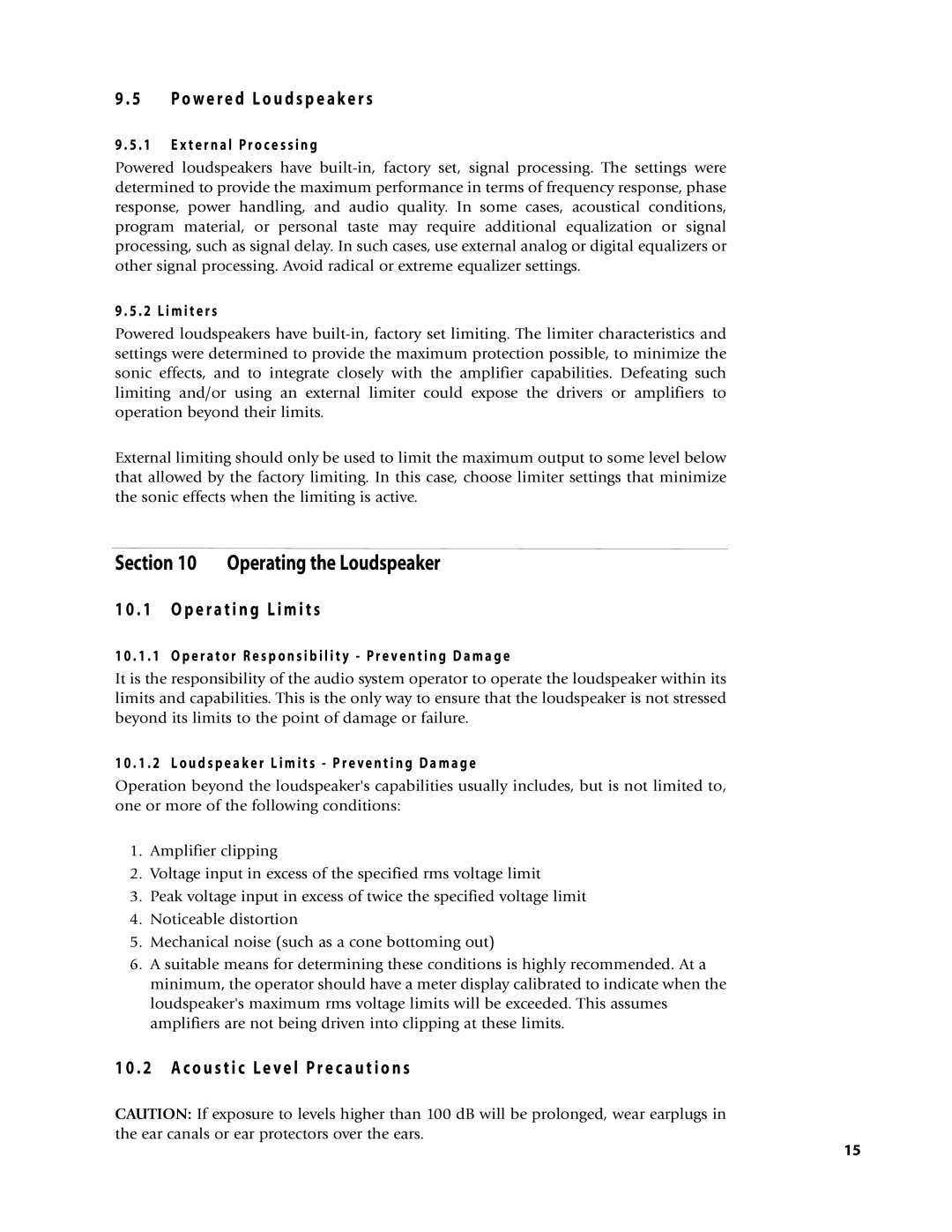9 . 5 | P o w e r e d L o u d s p e a k e r s |
9 . 5 . 1 | E x t e r n a l P r o c e s s i n g |
Powered loudspeakers have
9 . 5 . 2 L i m i t e r s
Powered loudspeakers have
External limiting should only be used to limit the maximum output to some level below that allowed by the factory limiting. In this case, choose limiter settings that minimize the sonic effects when the limiting is active.
Section 10 Operating the Loudspeaker
1 0 . 1 O p e r a t i n g L i m i t s
1 0 . 1 . 1 O p e r a t o r R e s p o n s i b i l i t y - P r e v e n t i n g D a m a g e
It is the responsibility of the audio system operator to operate the loudspeaker within its limits and capabilities. This is the only way to ensure that the loudspeaker is not stressed beyond its limits to the point of damage or failure.
1 0 . 1 . 2 L o u d s p e a k e r L i m i t s - P r e v e n t i n g D a m a g e
Operation beyond the loudspeaker's capabilities usually includes, but is not limited to, one or more of the following conditions:
1.Amplifier clipping
2.Voltage input in excess of the specified rms voltage limit
3.Peak voltage input in excess of twice the specified voltage limit
4.Noticeable distortion
5.Mechanical noise (such as a cone bottoming out)
6.A suitable means for determining these conditions is highly recommended. At a minimum, the operator should have a meter display calibrated to indicate when the loudspeaker's maximum rms voltage limits will be exceeded. This assumes amplifiers are not being driven into clipping at these limits.
1 0 . 2 A c o u s t i c L e v e l P r e c a u t i o n s
CAUTION: If exposure to levels higher than 100 dB will be prolonged, wear earplugs in the ear canals or ear protectors over the ears.
15
